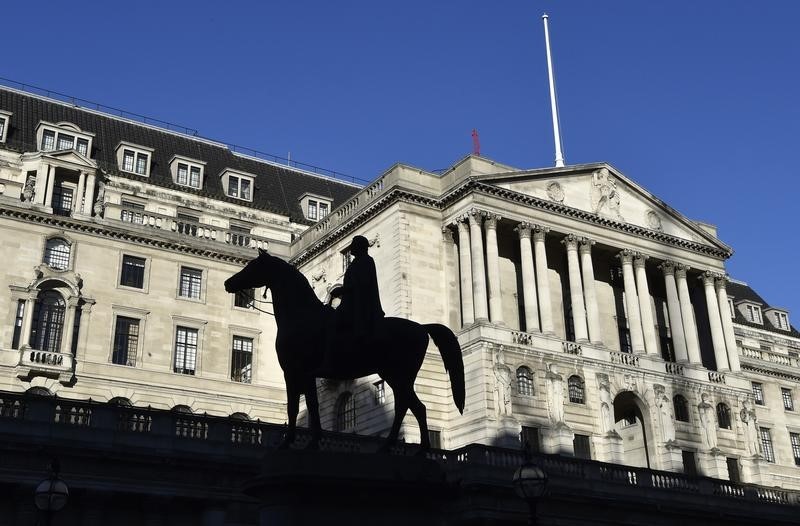By Andy Bruce
LONDON (Reuters) - The Bank of England marked the sixth anniversary of the introduction of its lowest ever interest rate by standing pat once again on Thursday, but an improving economy suggests rates are likely to rise at some point over the next 12 months.
While no economist polled by Reuters expects the Monetary Policy Committee to raise rates before a May 7 national election, given Britain's record low inflation, there are signs that policymakers believe a rate hike could come sooner than markets believe.
The Bank said on Thursday it was keeping rates at 0.5 percent, their level since the depths of the financial crisis.
Minutes of the meeting, explaining the debate among rate-setters, are due to be published in just under two weeks' time.
Business surveys this week showed Britain's economy started 2015 strongly, and wage data in the next few months could provide some policymakers with enough evidence that it can start to be weaned off low borrowing costs.
"The MPC's decision to stand pat today ... looks set to repeated over the next few months while inflation hovers near zero," said Samuel Tombs, economist at Capital Economics.
"But by the summer, it should be clear that the UK's deflation is neither pernicious nor long-lasting."
While there has been scant evidence that uncertainty around May's election has deterred business investment, the strong possibility of an indecisive outcome presents another reason to hold rates until later in the year.
Financial markets currently price in a first rate hike around the turn of 2016, but two policymakers -- Martin Weale and Kristin Forbes -- have warned that rates could rise in the near future if inflation shoots up from current low levels.
MPC member Ian McCafferty, who voted with Weale to raise rates from August through December, has said he will keep a close eye on wage data over the next few months before deciding whether to resume voting for higher rates.
For now, though, most MPC members seem content to wait and see how far inflation falls before considering a rate hike.
Last month's quarterly economic forecasts from the Bank indicated that consumer price inflation is likely to turn negative for the first time on record in the next few months.
Governor Mark Carney has said he expects the Bank's next move to be an increase in interest rates, although he said more stimulus could be required if inflation stayed around zero for more than a year.
The timing of a first interest rate hike from the U.S. Federal Reserve will also weigh on BoE policymakers.
Seven of the 17 members of the Fed's policy committee have now said they at least want the option of a June tightening on the table.

The situation in Britain stands in contrast to the euro zone, where the European Central Bank was due to flesh out its bond-buying stimulus plan later on Thursday.